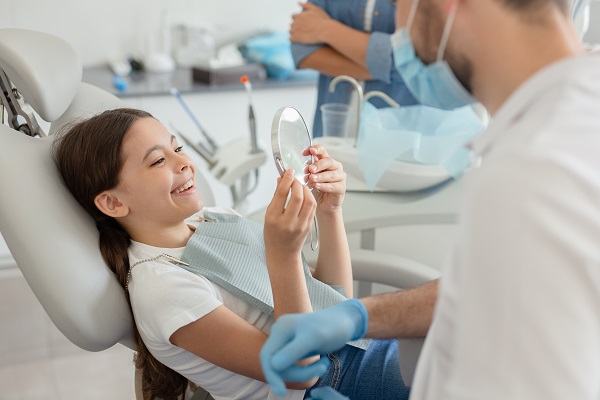A Family Dentist Explains if Tooth Health is Hereditary

Your family dentist can tell you that many things can be attributed to genetics, but when it comes to dental health, genes fall short of being able to take full responsibility. While genetic makeup can contribute to certain characteristics that a person has, ultimately, dental health is mostly dependent upon a willingness to maintain it.
Genes or personal care?
Hereditary dental health issues
The dental issues that could come from parents will mostly have to do with the internal and external characteristics of the mouth. Characteristics such as tooth size, the shape of the mouth and overcrowding are only a few of the things that can be passed down genetically when referring to dental problems. Overcrowding, for instance, can lead to tartar and plaque buildup if there is limited space in the mouth for all those teeth. Thankfully, these issues can be taken care of by consulting a family dentist to discuss possible tooth removal and/or tooth realignment.
However, some dental issues can be heredity. Certain variations of the gene beta-defensin 1 (DEFB1) are linked to a greater risk of cavities in permanent teeth. Those who have a history of periodontal disease or oral cancer can also be predisposed to the conditions. Although genes play some part in the health of your mouth, proper oral care can help prevent these issues from occurring.
Dental health is attributed to personal care
While dental characteristics and some predisposition to certain dental issues can be contributed to genes, it is up to each person to obtain and maintain good dental hygiene. Discoloration, stained teeth and decay from improper care are not linked to genetics. Try to avoid carbonated or sugary drinks, junk food and the use of tobacco products.
A family dentist can also provide insight on dental care habits including brushing, flossing and biannual cleanings. Brushing twice a day, flossing, maintaining a well-balanced diet as well as overall health can also be major players in dental health. Acknowledging this and maintaining a healthy lifestyle benefits teeth and well as body and mind.
Fix poor habits now
Even if oral hygiene was not a regular topic of conversation while growing up, a whole new routine can be started at any time. Small changes and reminders are a great start on the road to a healthy mouth. Brush once in the morning and set a reminder to add in a brush before bed. Also, if flossing is not a regular practice, consider adding that to a nightly oral hygiene routine. Remember that practice makes perfect.
Get everyone in the house on the same routine and instill the importance of good oral hygiene. Don’t forget, be sure to schedule regular cleaning appointments with a family dentist as a part of a regular dental care regimen.
Conclusion
Remembering that dental health is an individual’s responsibility is key. As much as it would be nice like to point the finger, genetics is usually not the reason for poor oral health. Poor oral health is based solely on an individual. Setting new routines, scheduling regular cleanings and checkups with a family dentist are all essential tools for maintaining a healthy mouth. Taking care of your teeth now will result in years of beautiful smiles to come.
Are you considering a family dentist in the Kennett Square area? Get more information at https://www.leardidental.com.
Check out what others are saying about our dental services on Yelp: Family Dentist.


